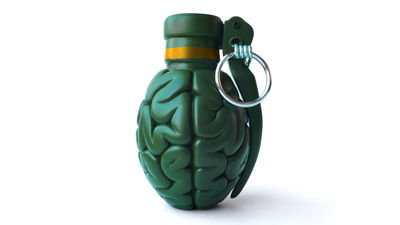Research results that the brain of aged mice was rejuvenated by 'cerebrospinal fluid' of young mice

Studies in the mid-2010s have shown
Young CSF restores oligodendrogenesis and memory in aged mice via Fgf17 | Nature
https://doi.org/10.1038/s41586-022-04722-0

Old Mice'Rejuvenated' With Injections of Brain Fluid From The Young
https://www.sciencealert.com/scientists-rejuvenate-the-memories-of-elderly-mice-by-injecting-them-with-young-mouse-cerebrospinal-fluid
Spinal Fluid From Young Mice Sharpened Memories of Older Rodents --The New York Times
https://www.nytimes.com/2022/05/11/science/mice-aging-memory-spinal-fluid.html
This was revealed in a paper published in the scientific journal Nature on May 11, 2022 by Tal Iram et al., Department of Neurology and Neurology, Stanford University School of Medicine.
According to Iram, the composition of cerebrospinal fluid is known to change with age, but it was not well understood how this change affects the function of cells in the aging brain.
The research team of Iram et al. Gave aged 18 to 22 months old mice a slight shock to their feet in response to sound and blinking lights, and then divided the group into two groups, 10 weeks old young. We were given either mouse cerebrospinal fluid or artificial cerebrospinal fluid.
Then, three weeks later, the aged mouse was given sound and blinking lights again. If you remember that the mouse was done 3 weeks ago, then you will be prepared to have a shock in your paw.
The results showed that older mice fed cerebrospinal fluid from younger mice had a higher than average rate of stance.
Further research confirmed that one of the glial cells, ' oligodendrocytes ,' responded most in a young cerebrospinal fluid-administered environment. Furthermore, it was found that young cerebrospinal fluid promotes the proliferation and differentiation of oligodendrocyte progenitor cells.
Fibroblast growth factor 17 (Fgf17) induces proliferation of oligodendrocyte progenitor cells and establishment of long-term memory by screening of cerebrospinal fluid, and blockade of Fgf17 impairs cognitive ability in young mice. It was also found that it could be made.
These facts not only suggest that Fgf17 may be a potential therapeutic target, but also suggest that the route of administration that allows the therapeutic drug to have direct access to cerebrospinal fluid may be beneficial for the treatment of dementia. ..
Related Posts:







